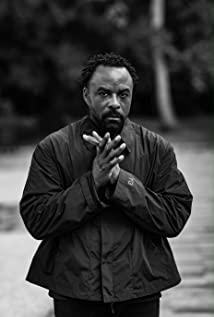Ivy has been missing for 13 years, who still can't let her go?
Her father had left home and had started a new life with another woman; her sister, 23, was about to get married; her mother had been quiet, mentally calm. This broken family without Ivy drifts along in the river of time obediently. If not, if they were stuck in the past, they would have been bruised all over by the rapids.
Ivy's first boyfriend is also married; she also has a good friend who has moved to another city. All those who are close to Ivy still remember Ivy, but this memory is no longer heavy. Not to mention the unrelated masses who have long forgotten the sensational kidnapping case 13 years ago.
Ivy's story comes from the British drama "Thirteen Lost" (Thirteen). This drama takes suspense and crime as the story shell, but in fact it can be said to be a well-structured ethical drama or psychological drama. It explores the inseparable and subtle relationship between people, and at the same time people are inevitably lonely.
The plot begins the moment Ivy escapes from the kidnappers and ends on the seventh day after the escape. During these seven days, public opinion once again focused on Ivy, and the news was overwhelming; those who were related to Ivy were impacted from the inside out. Among them, there was a person who had nothing to do with Ivy and was deeply influenced, and he was Eliot.
Elliott and Lisa are the two detectives in charge of the kidnapping investigation. From the beginning, their attitude towards Ivy was different. Elliott is the compassionate one, preferring to handle the case from Ivy's point of view.
Ivy first met Elliott and Lisa at the police station. As a victim, Ivy desperately wants to see her family, but as a police officer, Ivy's identity must be confirmed first. In a face-to-face taped conversation, Lisa said, "The woman we're interviewing now 'claims' she's been missing for the past 13 years." Then she asked Ivy, "Can you tell me your name? ?" Ivy didn't answer the question, but repeated the word that irritated her in confusion: "Claim?" Eliot raised his eyes in response, and from this moment, he had sympathy for Ivy.
Since then, in order to detect the case and catch criminals, Elliott and Lisa have talked with Ivy many times, sometimes at the police station, sometimes at Ivy's house. Carefully understand, there is a kind of cruelty: when the criminal is on the run, the police can only ask the victim, and those questions are actually the same, so the victim and the criminal are equivalent to a community of destiny, and the victim is like being interrogated on behalf of the criminal . Ivy, who came back after 13 years, tried to rebuild her past relationships, but failed one by one; on the other hand, she was constantly being questioned by the police and brought back to that dark experience. There's an overwhelming sense of guilt.
The case takes on more urgency as criminals kidnap another 10-year-old girl, Phoebe. Lisa suspected that Ivy had feelings for criminals for a long time. When she found out that the kidnapper was an employee of Ivy's school, she even suspected that Ivy knew the kidnappers before the crime and went with the kidnappers voluntarily. Out of the urgency of the situation, Lisa pressed Ivy again if she was hiding the whereabouts of the kidnappers, putting Phoebe's safety at risk.
There are reasonable elements in Lisa's judgment, but her assumptions exaggerate the facts, suspecting that Ivy knew where the kidnappers hid Phoebe, and even more wronged Ivy. Eliot and Lisa had a big disagreement because of this. They used to be a couple who loved each other, but now the relationship between the two has become tense. In Lisa's view, Elliott was emotional and affected the job; Elliott reminded her that he knew who she was - and that when he saw a promotion, he was desperate. In other words, Eliot saw Lisa as utilitarian and impersonal.
Eliot is indeed an emotional person, and he can't always separate his personal emotions from his work. Later, because of new findings in the case, Elliott also believed that Ivy was lying, suspecting that she knew where the kidnappers were hiding. He was worried about Phoebe's safety, lost his patience for a moment, and slammed the table on Ivy. Then he finds himself misunderstood Ivy, and he regrets his guilt again.
But it is also such an Elliott, because he never stays out of the way, so he has a spirit of recklessness. On the seventh day after Ivy escaped, the kidnappers made a condition for Ivy to see him alone. The police secretly protected Ivy, but they were still lost. The kidnappers released Phoebe, but successfully took Ivy. During the pursuit, Elliott blocked the road of the kidnappers with his car, only to be knocked over by the truck driven by the kidnappers. His ankle was fractured, and Lisa, who was also in the car, suffered a head injury, making the situation even more dangerous. After the kidnapper escaped, it was Elliott who persevered and inspired Phoebe to give clues by drawing and locked the kidnapper's location.
However, Elliott did not participate in Ivy's rescue, because Lisa's injury suddenly deteriorated, and he rushed to the hospital. In the hospital, he held Lisa's hand and blamed himself: "I messed up everything."
Eliot has weaknesses, but his weaknesses are also his valuables.
Ivy was not rescued by the police in the end, she rescued herself. This is another layer of connotation in this British drama, showing a story of courage and rebirth.
According to the plot, Ivy is suspected of having "Stockholm Syndrome", which refers to a psychological complex in which the victim has feelings for the perpetrator and even helps the perpetrator in turn. In fact, don't stick to the term.
Although the people around Ivy love her very much, no one can help her out of the psychological shadow. In this sense, everyone is alone. When a person does not dare to get out of his predicament, he will find all kinds of excuses for himself, but the reality will not change on its own, and the result can only be trapped in it. That's what Ivy meant by repeating the same mistakes in the show, right?
This drama is a crime theme on the surface, but it does not make a concrete review of Ivy's 13 years of experience. On the one hand, the perspective is always placed in the present, and it focuses on Ivy's loneliness and related interpersonal relationships. Fall back into the hands of the kidnappers, presenting Ivy's life in captivity in the ongoing rather than the past. This all goes to show that crime is not the point of the story. Kidnapping can be seen as a symbol, representing the bondage of psychological shadows or realistic predicaments.
The process of Ivy's escape took only one minute of footage. The police car arrived immediately, and Ivy's family hugged her tightly, and the whole play came to an abrupt end. Although the suspense was not resolved until the last moment, I never gave up hope. I think that's one of the values of fiction. In a fictional world, we don’t hesitate to choose the direction things should go because our hearts know it. However, it is easier said than done, but in reality, it is difficult for us to muster up the courage. In particular, what if it is the family that holds us back?
"Thirteen Lost Years" is not only exquisite in structure, but also very delicate in lens and outstanding in acting. I read it many times.
View more about Thirteen reviews











